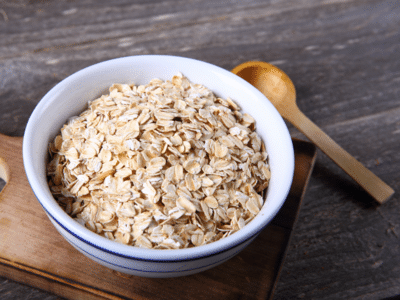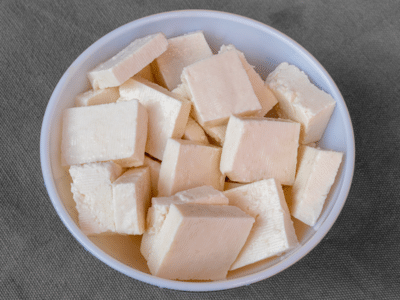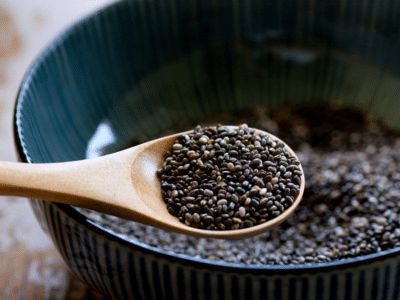In a world increasingly obsessed with protein shakes and carb-counting, there’s a quiet revolution happening in kitchens and grocery aisles—and it’s as wholesome as it is powerful. Nutritionists are shifting the focus from solo macronutrients to synergistic food pairings that offer the best of both worlds. At the heart of this change? Foods that are naturally rich in both protein and antioxidants, promising not just better fuel for the day—but also protection against long-term diseases.
According to a recent Good Housekeeping feature, these dual-nutrient foods are the unsung heroes of a balanced diet. “Carbohydrates give you quick energy while protein helps you feel fuller and repair tissues,” says dietitian Heidi McIndoo, M.S., R.D. “Together, they deliver lasting energy and essential nutrients—especially when the food is minimally processed and antioxidant-rich.”
Here are nine top contenders—shuffled, surprising, and satisfying—that could redefine how we think about “smart eating.”
Edamame: The Snack That Punches Above Its Weight
With 9 grams of protein per half-cup and packed with omega-3s, edamame isn’t just a sushi-sidekick. It’s a complete protein, rich in fiber, isoflavones, and heart-friendly fats. Dry-roasted versions are perfect for on-the-go snacking or adding crunch to salads.
Oats: Breakfast Hero Turned Protein Powerhouse
Not just your grandmother’s morning staple, oats now come in high-protein varieties delivering up to 10 grams per serving. Rich in beta-glucan fiber, they help stabilize blood sugar and cholesterol. Add nut butter or chia for a breakfast with serious staying power.

Black Beans: The Humble Bean That Delivers Big
More than 7 grams of protein per serving, plus antioxidants like anthocyanins and kaempferol, make black beans a staple for both heart and gut health. They’re as good in a burrito as they are baked into brownies.
Greek Yogurt: Creamy, Tangy, and Full of Goodness
Packing 16 grams of protein per serving and naturally containing carbs, this probiotic-rich dairy delight supports muscle health and digestion. Look for labels that include “live and active cultures” to get the gut-friendly benefits.

Quinoa: Grain-Like Seed with Superfood Status
Often mistaken for a grain, quinoa is a complete protein with 8 grams per cup. It also brings antioxidants, fiber, and complex carbs—fueling your body without the crash. Bonus: it’s naturally gluten-free.
Chickpeas: The Pantry Staple with Protein Power
Half a cup of these legumes delivers 7 grams of protein and a fiber punch. Their antioxidant load makes them perfect for everything from hummus to crispy roasted snacks.
Cottage Cheese: A Creamy Protein Alternative
With 12 grams of protein and a mild flavor, cottage cheese offers a softer texture than Greek yogurt while still delivering key nutrients like vitamin B12 and calcium. It’s also an underrated base for sweet or savory pairings.

Lentils: Budget-Friendly, Nutrient-Heavy
Lentils pack about 9 grams of protein per half-cup, along with fiber, folate, and iron. They’re a go-to for plant-based eaters and add depth to stews, salads, and veggie patties.
Chia Seeds: Small But Mighty
Two tablespoons bring nearly 3.5 grams of protein, but the real power lies in their antioxidant-rich fiber. “They’re one of the few plant-based complete proteins,” notes dietitian Lauren Twigge, M.C.N., RDN, in Good Housekeeping. Stir them into smoothies or puddings for a stealthy health boost.

Fuel for Today, Protection for Tomorrow
What makes these foods stand out isn’t just their protein content—it’s the added benefit of antioxidants, fiber, and vitamins that fight inflammation, support the immune system, and help slow the aging process.
Experts agree that combining carbs and protein isn’t just a strategy for weight management; it’s a blueprint for better living. Whether you're meal-prepping or just looking to snack smarter, these nine foods check all the right boxes—naturally.
According to a recent Good Housekeeping feature, these dual-nutrient foods are the unsung heroes of a balanced diet. “Carbohydrates give you quick energy while protein helps you feel fuller and repair tissues,” says dietitian Heidi McIndoo, M.S., R.D. “Together, they deliver lasting energy and essential nutrients—especially when the food is minimally processed and antioxidant-rich.”
Here are nine top contenders—shuffled, surprising, and satisfying—that could redefine how we think about “smart eating.”
Edamame: The Snack That Punches Above Its Weight
With 9 grams of protein per half-cup and packed with omega-3s, edamame isn’t just a sushi-sidekick. It’s a complete protein, rich in fiber, isoflavones, and heart-friendly fats. Dry-roasted versions are perfect for on-the-go snacking or adding crunch to salads.
Oats: Breakfast Hero Turned Protein Powerhouse
Not just your grandmother’s morning staple, oats now come in high-protein varieties delivering up to 10 grams per serving. Rich in beta-glucan fiber, they help stabilize blood sugar and cholesterol. Add nut butter or chia for a breakfast with serious staying power.
Black Beans: The Humble Bean That Delivers Big
More than 7 grams of protein per serving, plus antioxidants like anthocyanins and kaempferol, make black beans a staple for both heart and gut health. They’re as good in a burrito as they are baked into brownies.
Greek Yogurt: Creamy, Tangy, and Full of Goodness
Packing 16 grams of protein per serving and naturally containing carbs, this probiotic-rich dairy delight supports muscle health and digestion. Look for labels that include “live and active cultures” to get the gut-friendly benefits.

Quinoa: Grain-Like Seed with Superfood Status
Often mistaken for a grain, quinoa is a complete protein with 8 grams per cup. It also brings antioxidants, fiber, and complex carbs—fueling your body without the crash. Bonus: it’s naturally gluten-free.
Chickpeas: The Pantry Staple with Protein Power
Half a cup of these legumes delivers 7 grams of protein and a fiber punch. Their antioxidant load makes them perfect for everything from hummus to crispy roasted snacks.
Cottage Cheese: A Creamy Protein Alternative
With 12 grams of protein and a mild flavor, cottage cheese offers a softer texture than Greek yogurt while still delivering key nutrients like vitamin B12 and calcium. It’s also an underrated base for sweet or savory pairings.
Lentils: Budget-Friendly, Nutrient-Heavy
Lentils pack about 9 grams of protein per half-cup, along with fiber, folate, and iron. They’re a go-to for plant-based eaters and add depth to stews, salads, and veggie patties.
Chia Seeds: Small But Mighty
Two tablespoons bring nearly 3.5 grams of protein, but the real power lies in their antioxidant-rich fiber. “They’re one of the few plant-based complete proteins,” notes dietitian Lauren Twigge, M.C.N., RDN, in Good Housekeeping. Stir them into smoothies or puddings for a stealthy health boost.
Fuel for Today, Protection for Tomorrow
What makes these foods stand out isn’t just their protein content—it’s the added benefit of antioxidants, fiber, and vitamins that fight inflammation, support the immune system, and help slow the aging process.
Experts agree that combining carbs and protein isn’t just a strategy for weight management; it’s a blueprint for better living. Whether you're meal-prepping or just looking to snack smarter, these nine foods check all the right boxes—naturally.
You may also like

Madhya Pradesh: Power Theft Comes To Light In Chhatarpur's MCBU

Here's your chance to own a slice of history

'Our First Goal Is To Create 100 New Exporters In 100 Days' Says MPIDC ED Himanshu Prajapati

Oasis pay emotional tribute to Ozzy Osbourne at Wembley stadium show

Unassuming Arizona woman helped Kim Jong-un fund North Korea's nuclear weapons






